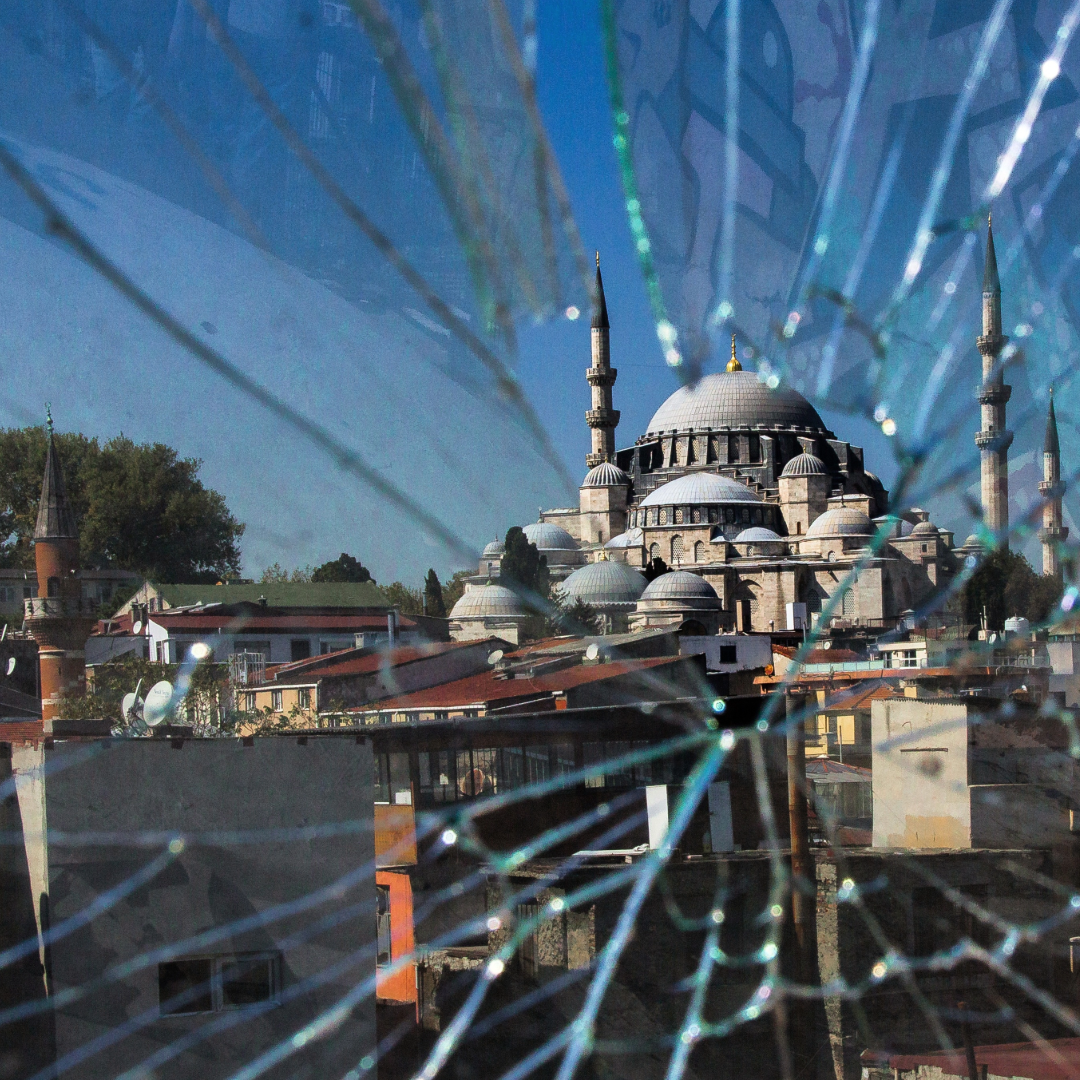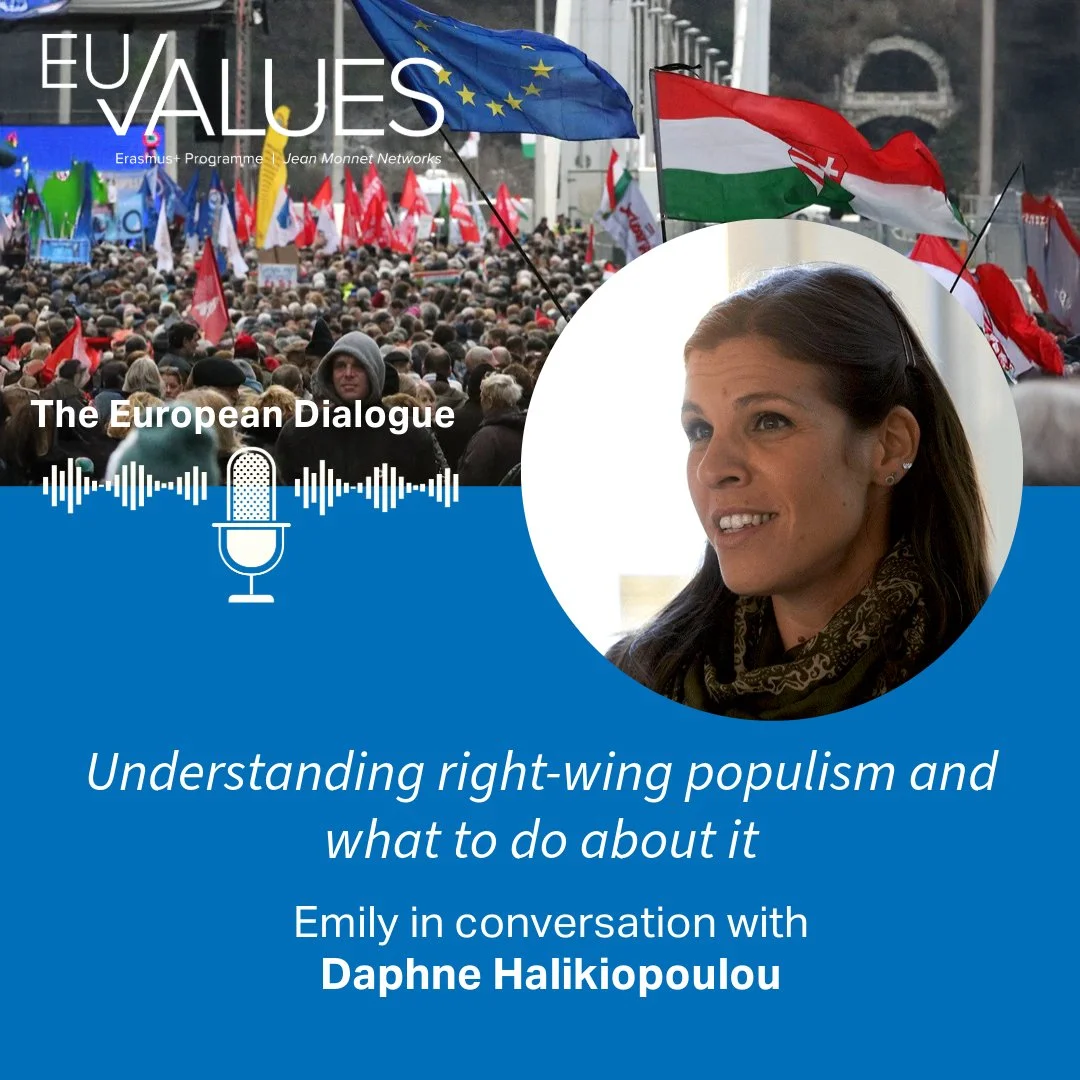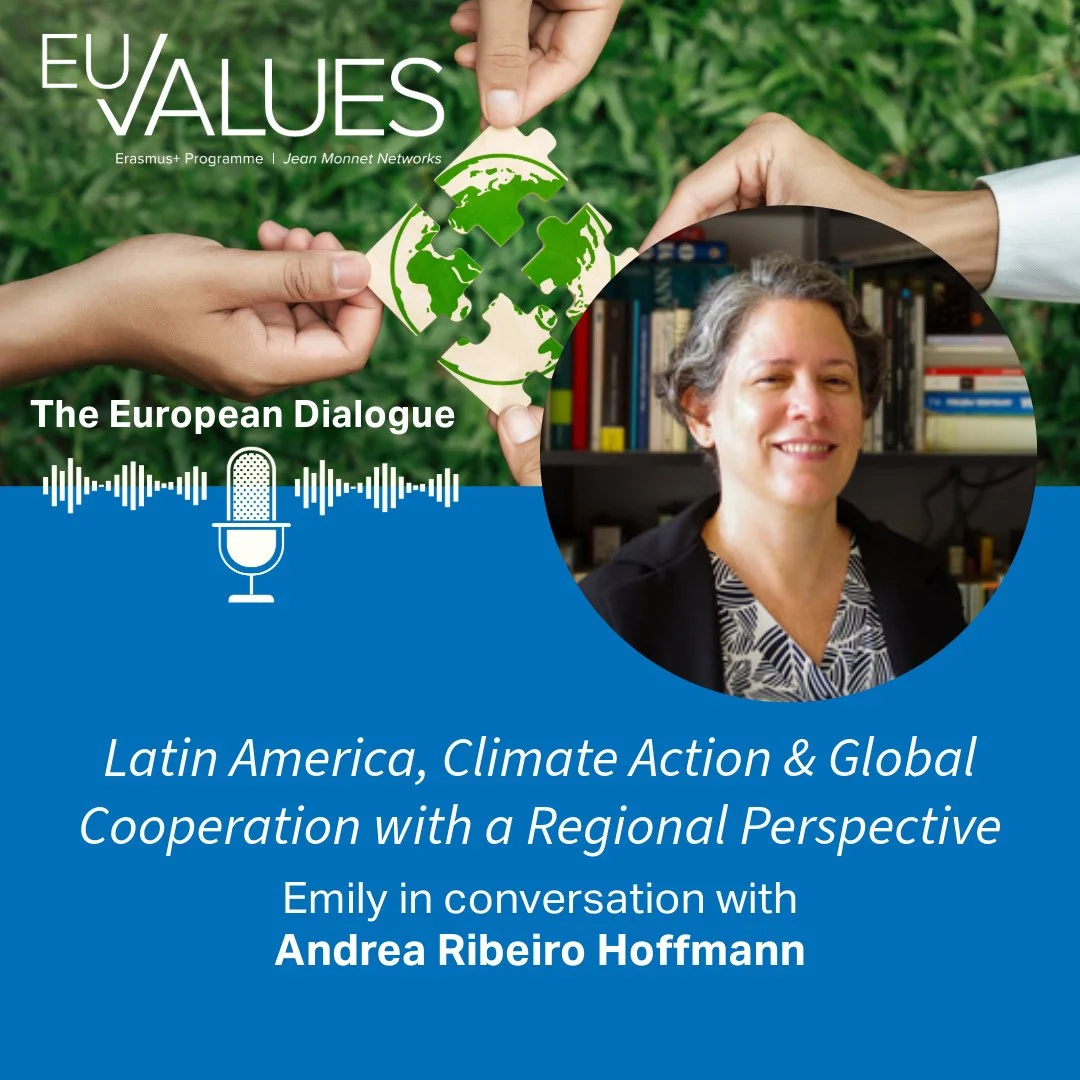
The EU-VALUES Network (EU Research and Education Network on Foreign Policy Issues: Values and Democracy) unites 21 leading higher education institutions from Europe and beyond to enrich the debate and deepen understanding of values and democracy in the EU's foreign policy.
Comprising nearly 100 academic experts from six continents, this coalition was formed with a focus on scholarly excellence and inclusiveness, emphasising gender equality and geographic diversity. Our network recognises the urgent need to bolster the EU's external legitimacy as a force for good amid global challenges.
European Values, Climate Policy and the Green Backlash: A Conversation with Catherine E. De Vries
European Values, Climate Policy and the Green Backlash: A Conversation with Catherine E. De Vries
Prof. Catherine E. de Vries (Bocconi and IE University) reflects on whether climate protection still stands as a core European value—and how resilient EU climate policy remains amid growing political pressure. Watch now to learn about:
How the European Union has embedded climate commitments into its internal agenda and external climate engagement.
Whether the EU is facing a green backlash under the second von der Leyen Commission and what this means for climate ambition in 2025.
How far-right parties are shaping the political debate around climate action, costs, and public support.
What the backlash could mean for the European Green Deal and the EU’s credibility as a global climate actor. - What it would take to make EU climate policy more politically sustainable in the years ahead.
This conversation with de Vries explores the intersection of values, power, and political contestation at a critical moment for Europe’s climate future.
Ideas and Insights from the EU-VALUES Network
The war in Ukraine has forced the EU to rethink its role on the continent, transforming enlargement from a normative project into a strategic instrument of security. In this blog, Seçkin Barış Gülmez examines Ursula von der Leyen’s speeches since 2022 to show how Brussels frames Ukraine’s EU accession not as routine integration but as a decisive tool against Russian aggression.
Amid rising geopolitical pressures, the EU’s enlargement policy reveals a troubling paradox: bold rhetoric on democracy, rule of law, and human rights paired with strikingly cautious action toward the Western Balkans and Turkey. In this blog, Erman Ermihan and Nasuh Sofuoğlu unpack the EU’s strategy of nihilistic responsibility—a performance of moral commitment that avoids real transformation—raising urgent questions about credibility, leadership, and the Union’s future as a normative power.
Voluntary Sustainability Standards are taking centre stage at COP30, where experts stress their role in advancing climate and supply-chain goals, reducing trade fragmentation, and improving traceability through digital tools. Read our reflections now to understand the key priorities, include cutting certification costs, strengthening inclusion, and harmonizing standards. As implementation accelerates, VSS will be vital for credible, practical, accessible sustainable trade.
The EU-VALUES European Dialogue Podcast: Our Latest Episodes :
India, Europe, and the Ukraine War: Perceptions Beyond Brussels with Rahul Desarda
Between Sovereignty and Normative Power: Reassessing EU–ASEAN Relations with Sukmawani Bela Pertiwi
In this episode of The European Dialogue, we explore how the European Union’s response to Russia’s war against Ukraine is perceived beyond Europe — with a particular focus on India and the wider Global South. What does Europe’s value-based foreign policy look like from New Delhi? And what does this mean for the EU’s global credibility today?
How has ASEAN evolved beyond economics, and what does this mean for democracy, human rights, and its partnership with the European Union? In this episode of The European Dialogue, Sukmawani Bela Pertiwi unpacks the political development of ASEAN, its foundational principles of sovereignty and non-interference, and how these shape the region’s engagement with Europe

Sign up to our mailing list to receive the latest Network’s updates straight to your inbox
Consent
By clicking above, you agree to join EU-VALUES mailing list. We will use your information to be in touch with you and to provide news, activities and events. Your data will be kept indefinitely until you indicate otherwise. The communication to third parties is not expected. You can change your mind at any time by clicking the unsubscribe link in the footer of any email you receive from us, or by contacting us at euvalues@ibei.org. We will treat your information with respect.












